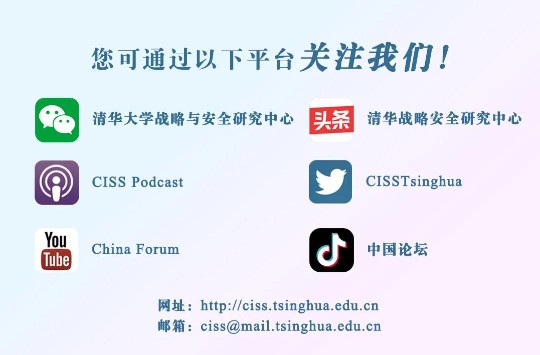当一位美国来访者向我细述美国社会对芬太尼问题的严重关切时,他赢得了我的同情。中国人对毒品有着深刻的历史记忆。女儿上中学后我就要求她去看禁毒展览。她每天作业很多,看电影的时间都没有。但我说,你一定要去了解这个问题,此生绝不碰它。作为一个母亲,没有比孩子的健康成长更重要了。
中国有严格的法律,种植、生产、贩运毒品都会受到刑事处罚。我在英国当大使时,一位英国毒贩在中国被判处死刑,引发媒体关注和不满。英国外交部的同行在周五晚上坚持要求我去听取交涉,我给他上了一堂1840年鸦片战争的历史课,提醒他,这个毒贩子进入中国时携带了4030克海洛因,足以让很多青年人失去生命,让众多家庭陷入痛苦。随着现代科技的发展,毒品的制售也上了新台阶,芬太尼不同于基于种植的传统毒品,只需要利用化学前体,经过简单合成就能造出来,而且可以不断变换方式形成新的衍生物。无论法律列管多少前体,不法分子总能很快发明新的合成方式逃过列管。
芬太尼类药物本身,是现代医学用于治疗疼痛的良药,阻断病患者对止痛药的可及性是非人道的。然而这类药物成瘾性强,长期甚至过量使用,对健康的危害是不可逆的。美国深受芬太尼滥用问题困扰十多年。大规模需求产生巨大非法市场。如何在满足全球医疗对前体化学品正常需求的同时,阻止其被贩毒集团获取?如何切断非法合成和贩运链条?这是存在滥用问题的市场国和化学物质生产国必须共同研究、合作攻克的难题。
中国是最积极打击毒品的国家之一,国内吸毒人口比例很低,成功避免了芬太尼类物质的规模化滥用。这主要依靠科学的列管(2019年在全球率先整类列管芬太尼类物质),严格的医药管理,缜密的执法环境,全民的防范意识,系统的戒治措施。而且,作为世界主要化工产品生产国的中国,高度重视履行国际责任,开展双多边交流,加强前体化学品管控,也一直支持和配合美国应对芬太尼危机。显然,美国以芬太尼为由对中国加征关税是没有道理的。
中国有句话叫“魔高一尺,道高一丈”。意思是说,坏人干坏事的伎俩增长一尺,好人阻止坏人干坏事的能力就应该增长一丈。现在美国需要的是克服地缘政治和意识形态的阻碍,若能坦诚务实与中国开展合作,将无往不胜。
前体化学品生产国家需要的是,建立全链条溯源平台,确保及时发现、追踪和封堵流失路径。更加重要的是,遭受滥用危害的国家应加强社会教育和治理,切实解决好需求端问题,毕竟,根治问题在于国内。
如果美国有意愿与中国认真合作,机会是很多的,比如对戒毒药和非阿片类镇痛药的研发合作,在执法领域尤其需要可靠的情报信息交换、开展反洗钱行动等。关键是要让双方专业人员能在一个信任的环境中,专注追踪和发现犯罪路径,相互提供可核实的证据链,精准打击和依法惩处贩毒集团。
相信中美两国有智慧和能力实现合作,加征关税不是选择。
本文翻译自 The Diplomat 2025年4月21日首发的英文文章“Imposing Tariffs on China Is Not a Choice to Tackle the US Fentanyl Issue”。
英文原文如下:
Imposing Tariffs on China Is Not a Choice to Tackle the US Fentanyl Issue
No single country can respond to the fentanyl challenge alone. What’s needed is joint effort and sustained cooperation – not economic coercion.
A visiting American guest recently shared with me the deep pain gripping American society amid the fentanyl crisis. He right away won my sympathy and understanding. The Chinese people carry a painful memory of their own: the devastation wrought by drugs in our modern history.
When my daughter entered middle school, I insisted she visit the anti-drug exhibition. She was reluctant as she was always overwhelmed with schoolwork and barely had time for a movie, but I insisted: you must know this issue – and never, ever touch drugs in your life. For a mother, there is no higher priority than the child’s health and well-being.
China has the strictest drug laws in the world. Cultivation, production, or trafficking of narcotics carries harsh criminal penalties. When I was ambassador to the United Kingdom, a British national received the death penalty in China for trafficking drugs. The British media reacted strongly, as society was angry about the case. I was summoned to the Foreign Office for a reproachment on a late Friday evening. I offered officials a history lesson on the Opium War of 1840 and reminded them that this man was caught with over 4 kilograms (4,030 grams to be exact) of heroin – enough to kill many young lives and plunge their families into grief.
The drug issue today has gone to another level. Modern chemistry has given rise to a new generation of synthetic narcotics. Unlike traditional drugs derived from plants, fentanyl is made in laboratories with chemical precursors plus a simple synthetic process. Its molecular structure can be easily modified, allowing illicit “chemists” to stay a step ahead of regulation.
Fentanyl was originally developed as a powerful tool in modern medicine to relieve severe pain. Denying patients access to such treatment is inhumane. Yet its addictive potential and the irreversible harm caused by excessive use have also made it dreadfully dangerous.
The United States has been grappling with fentanyl abuse for over a decade. Demand has fueled a large, malevolent underground market. The challenge is: How can fentanyl be prevented from being diverted to criminal networks while ensuring legitimate access to medical precursors? And how to break the chain of illicit synthesis and trafficking?
No single country can respond to the challenges alone. They require joint effort and sustained cooperation – particularly among nations where abuse is rampant and those that manufacture the relevant chemicals.
China has maintained a remarkably low rate of drug abuse and successfully prevented large-scale fentanyl misuse within its borders. This has been achieved through a combination of measures: a science-based regulatory system including officially regulated fentanyl substances as a class in 2019, strict pharmaceutical oversight, robust law enforcement, widespread public education, and a comprehensive rehabilitation network.
As a major producer of chemical products, China also takes its international responsibilities seriously. It has strengthened controls over precursor chemicals, enhanced cooperation through bilateral and multilateral mechanisms, and worked closely with the United States in combating fentanyl trafficking. It’s unreasonable for the U.S. to use the fentanyl issue as an excuse to impose tariffs on China.
There is a saying in Chinese: “When evil rises by a foot, righteousness must rise by ten.” It means: Those who uphold justice must always stay ahead of those who do harm. Today, the U.S. needs to rise above the geopolitics and ideological hurdles and engage China with honesty and pragmatism. Then there would be no challenge we cannot face together. Countries that produce chemical precursors should focus on building full-chain traceability systems to detect and shut down channels of leakage. And, more fundamentally, countries facing widespread drug misuse must strengthen education, improve domestic governance, and invest in communities, so as to effectively solving the problem from the demand side. Ultimately, the root of the crisis lies within.
If the U.S. is serious about working with China, there are many areas of opportunity: stronger law enforcement collaboration, intelligence sharing, and anti-money laundering cooperation, as well as joint research and development of addiction treatments and non-opioid pain relief.
But all of this depends on trust. Experts on both sides need space to build shared knowledge, expose trafficking networks, and pursue evidence-based enforcement.
China and the U.S. have the wisdom and capacity to work together. Imposing tariffs is not a productive choice.
英文原文链接:
https://thediplomat.com/2025/04/imposing-tariffs-on-china-is-not-a-choice-to-tackle-the-us-fentanyl-issue/

